简体中文
繁體中文
English
Pусский
日本語
ภาษาไทย
Tiếng Việt
Bahasa Indonesia
Español
हिन्दी
Filippiiniläinen
Français
Deutsch
Português
Türkçe
한국어
العربية
What Happens if A Broker Goes Bust?
Abstract:For traders, understanding what happens when a broker collapses is crucial. It serves as a reminder that choosing the right broker involves more than just attractive spreads and swift execution; it’s about safeguarding funds in case things go wrong.
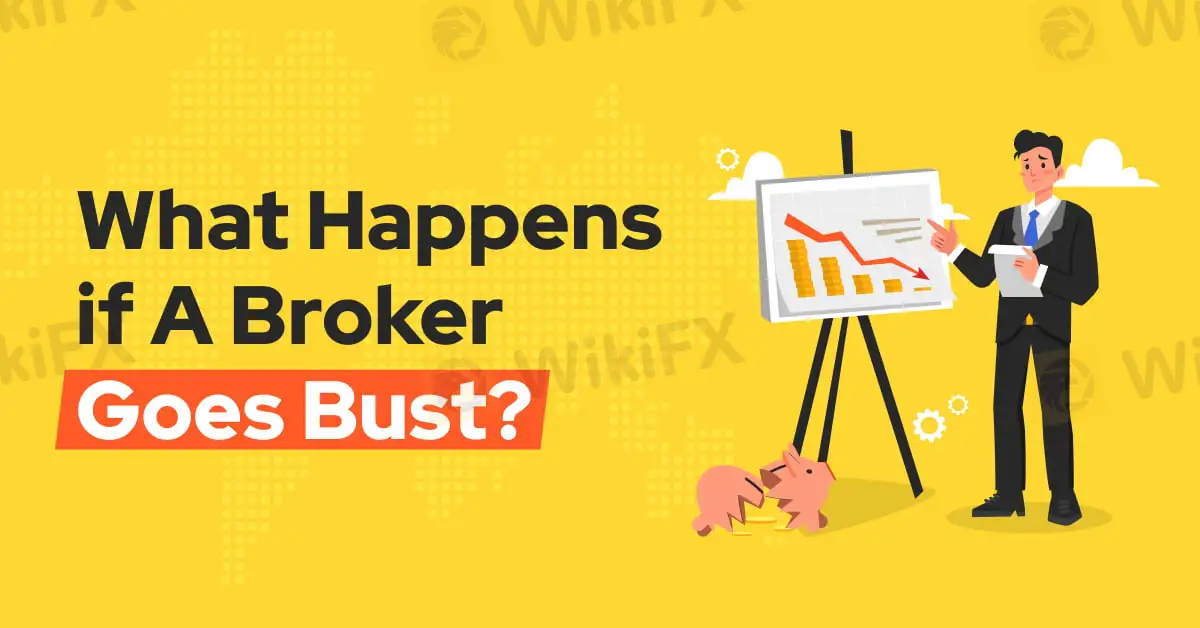
In the fast-paced world of forex and cryptocurrency trading, few traders anticipate the possibility that their broker could go bust. Yet, it‘s a reality in the financial industry. Brokers can face financial trouble for various reasons, including mismanagement, insolvency, and regulatory issues. For traders, understanding what happens when a broker collapses is crucial. It serves as a reminder that choosing the right broker involves more than just attractive spreads and swift execution; it’s about safeguarding funds in case things go wrong.
When a broker goes bust, it generally means the firm can no longer fulfil its financial obligations. This could lead to bankruptcy or the broker being forced to shut down by regulators. The primary risk for traders in this situation is the potential loss of their funds held in accounts with the broker. If a broker is insolvent, its liabilities might exceed its assets, putting client funds at risk unless proper measures are in place.

The impact on traders‘ funds largely depends on how the broker manages client money. Many reputable brokers maintain segregated accounts, meaning client funds are kept separate from the broker’s operating funds. This arrangement offers some protection, as these funds cannot be used to pay the brokers debts. However, not all brokers use segregated accounts, particularly in loosely regulated markets, which could leave traders in a vulnerable position.
In the forex and cryptocurrency sectors, insurance schemes and protections are limited. Some jurisdictions, like the UK, have compensation programs such as the Financial Services Compensation Scheme (FSCS) that reimburse traders in case of a brokers insolvency, up to a certain amount. However, traders using brokers based in jurisdictions without such protection may not have the same safeguards.
If a broker declares bankruptcy or is shut down, regulators or an appointed administrator will assess the firms financials. In cases where client funds are segregated, clients may eventually receive their balances, though this process can take weeks, months, or even years. Traders might need to file claims for their funds, a time-consuming process that requires proper documentation.
Without segregated accounts or regulatory protection, recovering funds becomes significantly harder. In these cases, traders join the list of creditors seeking repayment from any remaining assets of the broker. However, clients are often among the last to be paid after tax authorities, employees, and other prioritized creditors.
Although traders cannot control whether a broker stays solvent, there are steps to minimize risks:
- Choose Regulated Brokers: Opt for brokers regulated by reputable authorities. Regulatory bodies enforce standards that include safeguarding client funds through segregation and overseeing brokers financial stability. Avoid brokers based in jurisdictions with limited oversight.
- Review Financial Statements: For transparency, regulated brokers often disclose financial statements, which can provide insight into their financial health. While this may not guarantee stability, it can highlight potential warning signs.
- Stay Informed: Monitor news about your broker and any regulatory actions or penalties. These can serve as early signals of potential trouble.
- Limit Exposure: Avoid concentrating all trading funds in one broker, particularly if trading with high-risk brokers. Diversifying across several accounts can reduce the impact of a single brokers failure.
The collapse of a broker is rare but not impossible. As with trading strategies, risk management is essential when choosing a broker. Understanding the implications of a broker going bust should prompt traders to carefully consider whom they entrust with their funds. In a landscape where losses can already happen due to market volatility, dont let avoidable risks compound the challenge. A little caution can go a long way in safeguarding your trading capital.
To help protect individuals, WikiFX offers essential tools and resources for verifying the legitimacy of brokers and financial platforms. With an extensive database of global broker profiles, regulatory status updates, and user reviews, WikiFX empowers users to make informed decisions before committing to any financial investment. The apps risk ratings and alerts for unlicensed or suspicious entities enable investors to easily spot red flags and avoid potential scams. By checking a broker's background on WikiFX, users can better safeguard their hard-earned savings and steer clear of fraudulent schemes, making WikiFX an indispensable resource for safer investing.
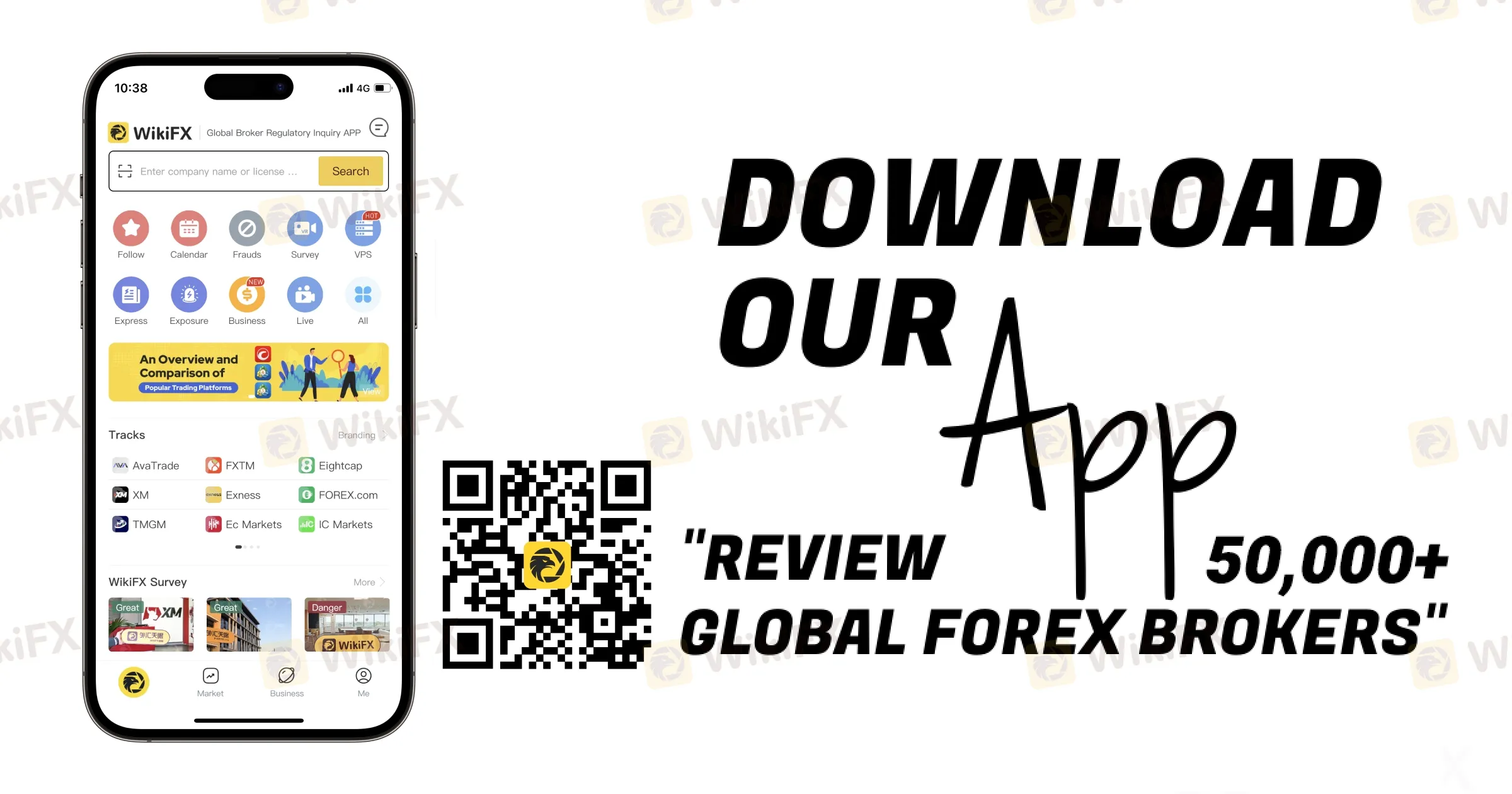
Disclaimer:
The views in this article only represent the author's personal views, and do not constitute investment advice on this platform. This platform does not guarantee the accuracy, completeness and timeliness of the information in the article, and will not be liable for any loss caused by the use of or reliance on the information in the article.
Read more
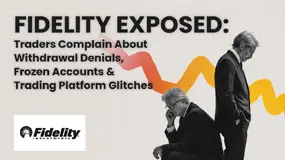
Fidelity Exposed: Traders Complain About Withdrawal Denials, Frozen Accounts & Platform Glitches
Does Fidelity Investments prevent you from accessing funds despite numerous assurances on your requests? Do you witness an account freeze by the US-based forex broker every time you request withdrawal access? Do you struggle with an unstable trading platform here? Is the slow Fidelity customer service making you face forced liquidation? These issues haunt traders, with many of them voicing their frustration on several broker review platforms such as WikiFX. In this Fidelity review article, we have shared quite a few complaints for you to look at. Read on!

Exposing The Trading Pit: Traders Blame the Broker for Unfair Withdrawal Denials & Account Blocks
Did you receive contradictory emails from The Trading Pit, with one approving payout and another rejecting it, citing trading rule violations? Did you purchase multiple trading accounts but receive a payout on only one of them? Did The Trading Pit prop firm refund you for the remaining accounts without clear reasoning? Did you face account bans despite using limited margins and keeping investment risks to a minimum? These are some raging complaints found under The Trading Pit review. We will share some of these complaints in this article. Take a look.
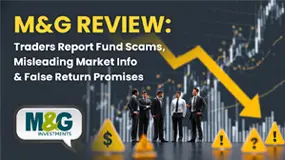
M&G Review: Traders Report Fund Scams, Misleading Market Info & False Return Promises
Applying for multiple withdrawals at M&G Investments but not getting it into your bank account? Do you see the uncredited withdrawal funds out of your forex trading account on the M&G login? Does the customer support service fail to address this trading issue? Does the misleading market information provided on this forex broker’s trading platform make you lose all your invested capital? Were you lured into investing under the promise of guaranteed forex returns? These issues have become highly common for traders at M&G Investments. In this M&G review article, we have echoed investor sentiments through their complaint screenshots. Take a look!
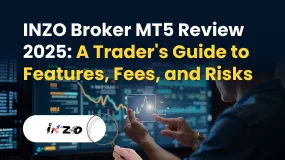
INZO Broker MT5 Review 2025: A Trader's Guide to Features, Fees and Risks
INZO is a foreign exchange (Forex) and Contracts for Difference (CFD) brokerage company that started working in 2021. The company is registered in Saint Vincent and the Grenadines and regulated offshore. It focuses on serving clients around the world by giving them access to popular trading platforms, especially MetaTrader 5 (MT5) and cTrader. The company offers different types of trading instruments, from currency pairs to cryptocurrencies. It aims to help both new and experienced traders. Read on to know more about it.
WikiFX Broker
Latest News
Forex Expert Recruitment Event – Sharing Insights, Building Rewards
Admirals Cancels UAE License as Part of Global Restructuring
Moomoo Singapore Opens Investor Boutiques to Strengthen Community
OmegaPro Review: Traders Flood Comment Sections with Withdrawal Denials & Scam Complaints
An Unbiased Review of INZO Broker for Indian Traders: What You Must Know
BotBro’s “30% Return” Scheme Raises New Red Flags Amid Ongoing Fraud Allegations
The 5%ers Review: Is it a Scam or Legit? Find Out from These Trader Comments
WikiEXPO Dubai 2025 Concludes Successfully — Shaping a Transparent, Innovative Future
2 Malaysians Arrested in $1 Million Gold Scam Impersonating Singapore Officials
Is FXPesa Regulated? Real User Reviews & Regulation Check
Currency Calculator



